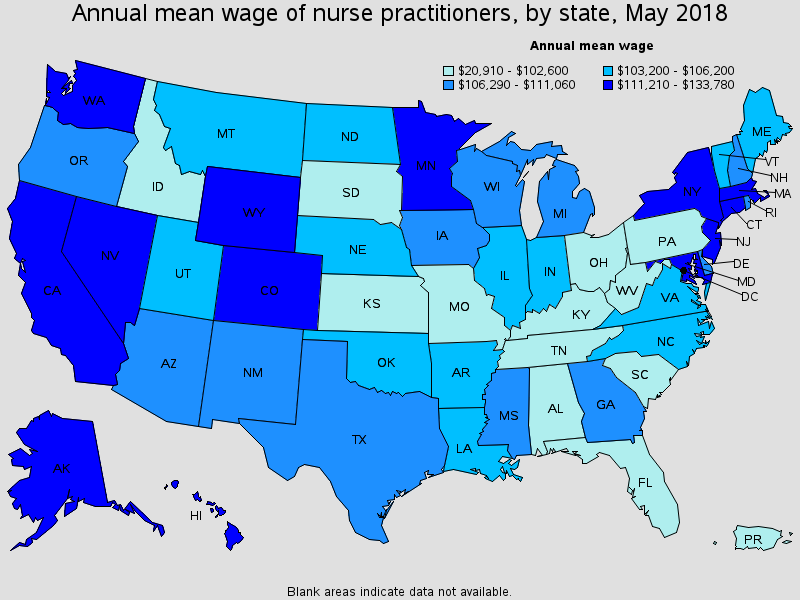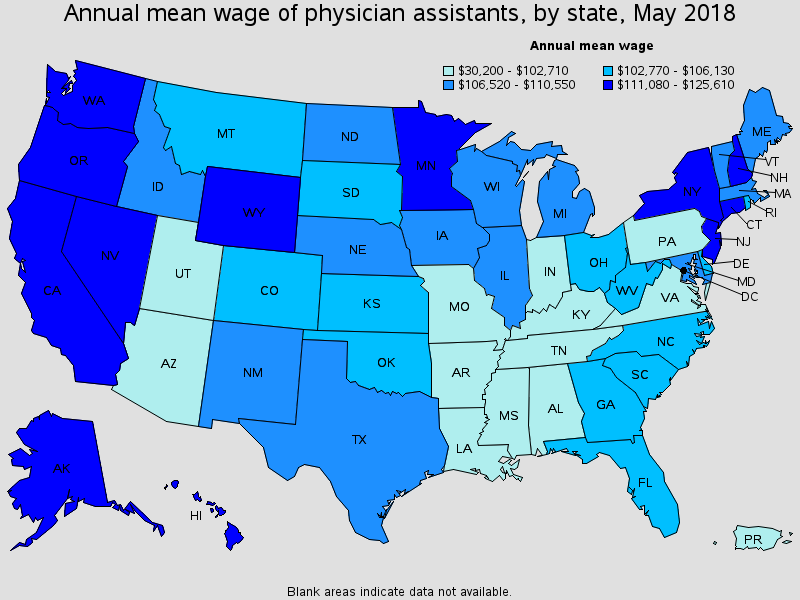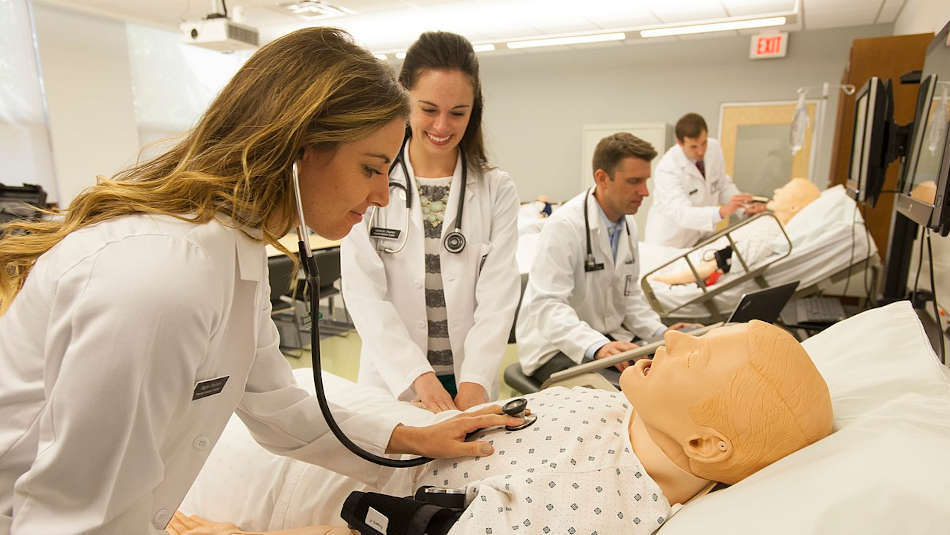You already know that you want to study nursing, but aren’t sure about whether you would like to be a nurse practitioner or a physician assistant?
Don’t you worry because I’m going to answer all the possible questions you could think of about the subject Nurse Practitioner vs Physician Assistant.
At this point, you might think that who am I you to give the answers?
The person behind this article is me, Ida Koivisto, a registered nurse, and a public health nurse.
For further information about me, check out my About-page and come back after you have decided if you can trust the information I give you.
Table of Contents
Basic information about professions
Before I can give you more detailed answers to compare Nurse Practitioner vs Physician Assistant, you have to know some basic information about these different kinds of professions.
If you already know the basics, you can skip straight down to the topic: Nurse Practitioner vs Physician Assistant Salary.
Basic information about a Nurse Practitioner
If you rather prefer information provided in a video format, please scroll down a tiny bit. If you rather prefer reading more, just keep on reading.
Nurse practitioners review patient histories and symptoms to diagnose health conditions.
If a patient is sick or has an injury, the nurse practitioner decides how to treat it, prescribes appropriate medication, and evaluates the patient’s response to medicines and treatments.
If you want to learn more about this, check our article: Can Nurse Practitioners Diagnose?
Nurse practitioners might also order and interpret lab tests and x-rays, record their patients’ progress and symptoms, and refer to specialists as needed.
They talk with patients about how effective, safe, and expensive their treatment options are.
Nurse practitioners may have a general family practice or work in emergency medicine, oncology, or women’s health.
See also: Oncology Nurse Interview Questions
They may focus on a population like children, the elderly, or those with mental illness.
Some nurse practitioners may work in clinics independently; however, all nurse practitioners consult with physicians and other health professionals when needed.
How about the education needed to be a nurse practitioner?
Nurse practitioners are required to have a master’s degree, a registered nurse license, and in most states in the United States, professional certification.
In other countries and regions, like in Australia, Canada, Europe, it’s pretty much the same.
Here is a detailed video about a nurse practitioners’ profession for you if you like it more than reading a plain text.
Now that you know the basic information about a nurse practitioner profession, next up I’m going to give you the same about a physician assistant.
Basic information about a Physician Assistant
If you rather prefer information provided in a video format, please scroll down a tiny bit.
But keep in mind that before I can give you the answer to battle: nurse practitioner vs physician assistant,
Are you interested in a medical career with more advanced training than a registered nurse, but less than a doctor? You should consider then becoming a physician assistant or PA.
Under a physician’s supervision, physician assistants (PAs) examine and diagnose patients’ injuries or illnesses, treat and educate patients, and prescribe medicine.
See also: Can a Nurse Practitioner Prescribe Medication?
A physician assistant also does many of the same tasks a doctor does, from setting broken bones to ordering x-rays and blood tests.
Physician assistants work in all areas of medicine, including primary care and family medicine, emergency medicine, psychiatry, and surgery-where they assist physicians during procedures.
Like other medical professionals, PAs spend significant time reviewing patient records and documenting patients’ progress.
Most physician assistants work in healthcare clinics and hospitals.
Spending many hours each day on their feet to make rounds and examine patients, the work can be physically demanding.
That being said it’s important to keep care of your own physical condition!
Most physician assistants work full time and may work nights, holidays and weekends.
Some PAs are required to work on-call shifts, ready to respond to patient needs at any time.
So keep that in mind if you prefer to keep your free time completely free.
How about the education needed to be a physician assistant? A master’s degree and license are required to enter the field.
Physician assistants bring healing and help to patients, while continuously learning from the skilled physicians in their midst, and from patients who depend on their skills.
Here is the same information for you, provided in a video format if you prefer that more.
That’s all the basic information about these two professions.
Now we can dig in a bit deeper, and deal with the topic about the money: nurse practitioner vs physician assistant salary. I’m pretty sure you want to know this.
After I have covered that topic, I’m going to give you a comparison about the scope of practice and the pros and cons of nurse practitioner vs physician assistant.
Nurse practitioner vs physician assistant salary
This might be the most interesting topic for many of us: nurse practitioner vs physician assistant salary.
If you would like to know a wider perspective about nurses’ salaries, check out also this article of ours:
I’ll give you as much as possible valuable information about the salaries first and after that, a summary with heading Do nurse practitioners or physician assistants make more.
Let’s start with the nurse practitioners’ salaries.
According to the U.S. Bureau of Labor Statistics, the mean hourly wage of a nurse practitioner including all states was $52.90 in May 2018.
The mean annual wage including all states of the USA was a whopping $110,030.
These average values are based on approximately 179 thousand nurse practitioners working in the United States. Note: Estimates do not include self-employed workers.
In this infographic, you can see the differences between the wages, by states in May 2018.

But how about if you are not going to be working in the United States, but maybe rather in Australia, Canada, Europe, or the United Kingdom?
I’m sorry that I couldn’t find enough reliable information for you about these countries and regions.
But for sure you can use these values as a guideline for comparing nurse practitioner vs physician assistant salary.
Next up the physician assistants’ salaries.
Again, according to the U.S. Bureau of Labor Statistics, the mean hourly wage of a physician assistant including all states of the USA was $52.13 in May 2018.
The mean annual wage including all states of the USA was honorable $108,430.
These average values are based on approximately 114 thousand physician assistants working in the United States. Note: Estimates do not include self-employed workers.
Here is an infographic for you about the annual mean wage of a physician assistant, by the state, in May 2018.

Please note, that the difference between wages is mostly based on the cost of living.
So if you are getting over $100,000 in California, that doesn’t straight mean that you would be getting “more” compared to Arizona, for example.
But do nurse practitioners or physician assistants make more money? That’s coming up next.
Do nurse practitioners or physician assistants make more?
Including all states, on average, a nurse practitioner makes 77 cents more hourly than a physician assistant.
On an annual basis, the difference is $1600 to the benefit of the nurse practitioner.
Please keep in mind that this is a rough estimate, based on the mean wages on all the states.
For example in May 2018 in Florida, on average, a physician assistant was making $1.91 per hour more than a nurse practitioner.
But then again, in California, a nurse practitioner was making $7.96 per hour more than a physician assistant.
But for the most part, it can be said that nurse practitioners’ and physician assistants’ salaries are very close to each other.
Based on the situation in the USA we can highly assume that this is the case also in Australia, Canada, Europe, and the United Kingdom.

Nurse practitioner vs physician assistant scope of practice
Now that you know the mean hourly and annual wage between these two professions it’s time to look at the nurse practitioner vs physician assistant scope of practice more specifically.
Let’s start with education because that’s where it all starts.
Nurse practitioners are trained on the nursing model and then they go on and become practitioners, hence the name nurse practitioner.
On the other hand, physician assistants (PAs) are trained on the physician model. It’s like taking medical school that a medical doctor (MD) goes to and condensing it down into two to three years.
Another difference between nurse practitioner vs physician assistant scope of practice is this:
- Nurse practitioners can hang out a shingle and they can practice on their own.
- Whereas physician assistants (PAs), all of the time, have to practice under the supervision of a physician.
That’s it, the major differences between a nurse practitioner’s and a physician assistant’s scope of practice.
Next up I’m going to list the pros and cons of nurse practitioner vs physician assistant for you. After that, you have an even better understanding of these two professions.
Pros and cons of nurse practitioner vs physician assistant
In this last chapter of the article, I’m going to give you the pros and cons of these two nursing professions. To keep the article in order, let’s start with a nurse practitioner again:
Pros of being a nurse practitioner:
- The wage is reasonably good (could be over $100.000 a year)
- Camaraderie with co-workers
- You are making a huge difference by helping others
- Interesting and diverse kind of job
Yeah, working as a nurse practitioner is pretty awesome! But of course, there are some cons also.
Cons of being a nurse practitioner:
- You are exposed to viruses and germs
- Indeed, not all patients are polite
- Sad situations are inevitable
At least, the list of cons’ is quite a short one. Okay, but how these differ from being a physician assistant then? Let me show you.
Pros of being a physician assistant:
- The wage is reasonably good (could be over $100.000 a year)
- Camaraderie with co-workers
- You are making a huge difference by helping others
- Interesting and diverse kind of job
Pretty much the same as being a nurse practitioner.
Cons of being a physician assistant:
- You are exposed to viruses and germs
- Indeed, not all patients and physicians are polite
- Sad situations are inevitable
You guessed it right. The only difference between the cons is that physician assistants’ have to deal more with physicians.
To calm you down, I’ll need to tell you that most of the physicians are actually pretty awesome people to work with!
I really hope that this article of mine helped you to think about whether you rather want to become a nurse practitioner or a physician assistant.
Or if you compared a nurse practitioner vs physician assistant for some other purposes, that you got what you were looking for.
I’d appreciate it if you could rate this article. It helps me to create even better articles in the future for you!
If you are eager to learn some more, please check out these articles of ours:
- Can Nurses Have Tattoos?
- Are Nurses First Responders?
- Do Nurses Get Drug Tested?
- Do NPs Need Malpractice Insurance?
- Are Nurse Practitioners Respected?
If not interested in right now, just have a good day!
